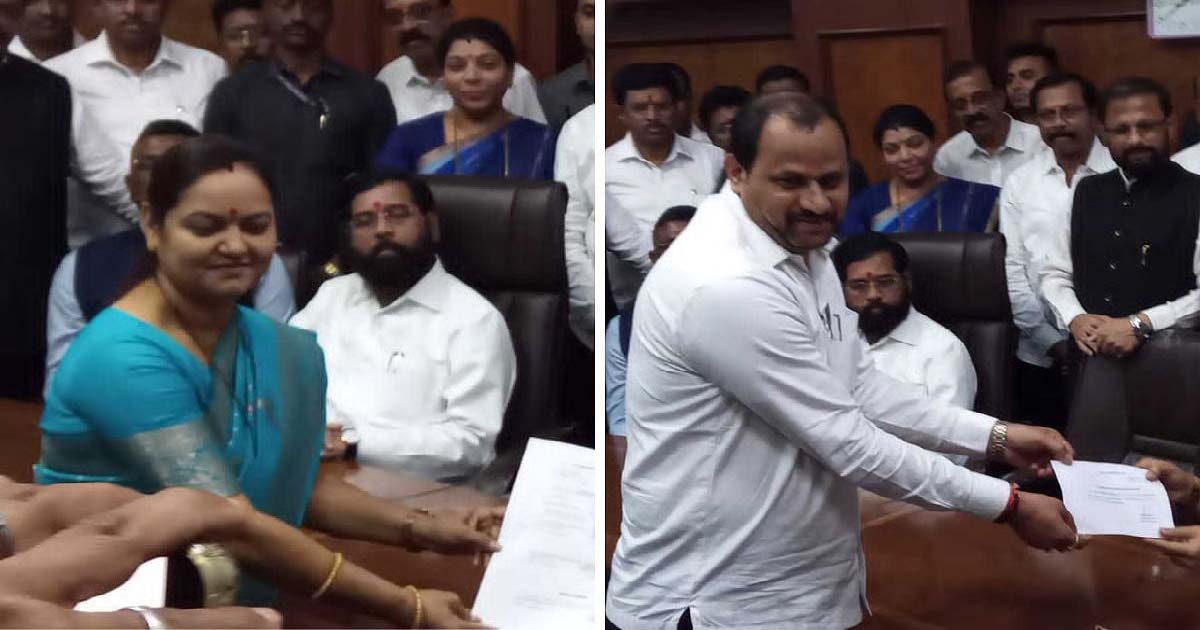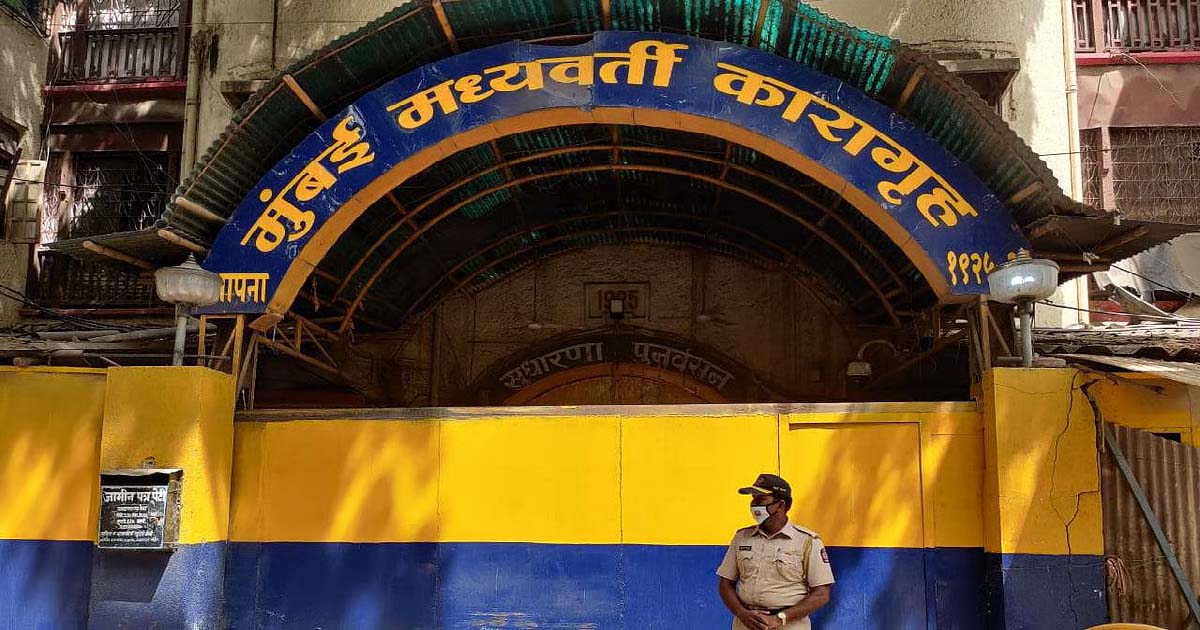Politics
Amit Shah visits Prime Ministers’ museum

Union Home Minister Amit Shah on Monday visited the ‘Pradhanmantri Sangrahalaya’ along with his wife Sonal Shah.
He observed every specific point of the museum and watched all 14 galleries dedicated to all 14 former Prime Ministers of the country.
The museum was inaugurated by Prime Minister Narendra Modi on April 14,2022 at the ‘Teen Murti Estate’ and covers the lives and contributions of all the 14 former Prime Ministers.
Established in a large area of 10,491 square meters at a cost of Rs 306 crore, the design of the museum is inspired by the story of rising India.
There are a total of 43 galleries in the museum with the cutting edge technology-based interfaces to encompass heterogeneity in content and frequent rotation of display.
The Sangrahalaya tells the story of how the Prime Ministers navigated the nation through various challenges and ensured the progress of the country. Each Prime Minister has been allocated space and given prominence according to their term in office.
During the inauguration ceremony, Modi said that the museum would become a source of energy for future building and inspire future generations.
The building begins with the gallery of the second Prime Minister Lal Bahadur Shashtri and covers the history and major achievements of all former PMs of India.
At the end, there is a gallery of Dr Manmohan Singh who was the Prime Minister till April, 2014.
National News
Shinde Sena’s Sharmila Pimpolkar Set To Become Thane Mayor, BJP’s Krishna Patil Deputy Mayor; Both Elected Unopposed

Thane: Sharmila Rohit Pimpolkar of the Shiv Sena (Shinde faction) is set to be appointed as the Mayor of the Thane Municipal Corporation (TMC), while Krishna Dadu Patil of the Bharatiya Janata Party (BJP) will assume charge as the Deputy Mayor. Both leaders were elected unopposed after filing their nominations on the final day for submitting nomination papers for the mayoral posts.
Pimpolkar filed her nomination for the Mayor’s post, while Patil submitted his papers for the Deputy Mayor’s position. No other candidates entered the fray for either post, clearing the way for their unopposed election. The official announcement confirming their appointments is scheduled to be made on February 3.
A meeting related to the mayoral election process was held at the Thane Municipal Corporation headquarters in the presence of Deputy Chief Minister Eknath Shinde. Several senior leaders attended the meeting, including Transport Minister Pratap Sarnaik, Thane MP Naresh Mhaske, BJP MLA Niranjan Davkhare, Ravindra Phatak and other party functionaries.
Meanwhile, reports indicated that the Shinde Sena has categorically refused the BJP’s demand to rotate the Mayor’s post for two years in Thane. In the recently concluded Thane Municipal Corporation elections, the Shinde Sena emerged as the dominant force with 75 seats, while the BJP secured 28 seats. Citing its clear numerical strength, the Shiv Sena has reportedly conveyed at the local level that it will not hand over the Mayor’s post to the BJP even for a year.
Following the refusal, BJP leaders are said to have staked claim to key power centres within the civic body, including the Standing Committee, Transport Committee, various subject committees, ward committees and the Education Board. Shinde Sena reportedly proposed that the BJP accept the Deputy Mayor’s post, while committees and ward panels could be shared between the two parties for fixed tenures of three and two years respectively.
Maharashtra
Crackdown on illegal street vendors in Andheri, Mumbai Municipal Corporation’s ‘K-Waste’ department takes action, citizens are relieved

Mumbai: Around 200 unauthorised hawkers and additional structures on footpaths in Ram Ganesh Gadkari Marg (Arla Marg) area of Andheri (West) in Mumbai were evicted by the Mumbai Municipal Corporation’s ‘K-West’ department yesterday (January 29, 2026). The operation, as per the instructions of Municipal Corporation Commissioner and Administrator Bhushan Gagrani, was conducted under the guidance of Deputy Commissioner (Zone-4) Bhagya Shri Kapse, and Assistant Commissioner (K-West Division) Chakrapani Ale. Unauthorised additional structures were found on footpaths connecting Swami Vivekananda Marg and Gulmohar Marg in Andheri (West) and on Ram Ganesh Gadkari Marg (Arla Marg) adjacent to the entrance of Dr. No. Cooper Hospital. It was also observed that unauthorised hawkers have set up shops in this area. It was creating obstacles for ambulances bringing patients to Cooper Hospital in case of emergency and for pedestrians to walk on the footpaths.
In this context, an eviction drive was launched by the ‘K-West’ administrative department of the Mumbai Municipal Corporation. Under this, around 200 unauthorized hawkers and unauthorized additional structures established on the footpaths in this area were evicted.
The eviction was carried out with the help of 04 encroachment removal vehicles, 03 JCBs and other equipment. During this operation, an adequate police force including 100 officers and employees of the Municipal Corporation were deployed. Local representatives and citizens are expressing satisfaction over this action. The Municipal Corporation administration has made it clear that regular evictions against unauthorized structures will continue in the future.
Crime
Mumbai Crime: Undertrial Prisoner Assaults Policeman Inside Arthur Road Jail, Case Registered

Mumbai: A shocking incident has come to light from Mumbai’s Arthur Road Jail, where an undertrial prisoner allegedly assaulted a police constable on duty.
The accused, Lokendra Uday Singh Rawat (35), is reported to have headbutted Police Constable Hani Baburao Wagh (30), causing injuries to his nose, and also abused and pushed other on-duty police personnel. A case has been registered in this connection at the N. M. Joshi Marg police station.
According to the FIR, the complainant, Police Constable Wagh, is attached to Armed Police Division–2, Tardeo. On January 27, he reported for his 24-hour day-duty shift at Arthur Road Jail at around 8 am and was assigned security duty at the main entrance of the prison.
At around 9 pm, Armed Police Constables Suresh Sandu Mali and Sachin Chavan brought undertrial Lokendra Rawat back to the jail after producing him before the Dindoshi Court. Rawat allegedly appeared agitated and, after entering the jail premises, sat near the gate and began verbally abusing the police personnel on duty.
Constable Wagh asked Rawat to calm down and refrain from using abusive language. However, Rawat allegedly became more aggressive and continued shouting abuses. When Wagh approached him again to pacify the situation, Rawat suddenly headbutted him on the nose with force.
As a result, Constable Wagh sustained injuries and started bleeding. Fellow constables Sachin Chavan and Suresh Mali immediately intervened, restrained the accused, and informed the on-duty prison authorities about the incident. Rawat was subsequently sent for medical examination to Sir J.J. Hospital.
After receiving medical treatment, the injured constable lodged a formal complaint on January 28 at the N. M. Joshi Marg police station. Based on the complaint, police have registered a case against the undertrial under relevant sections of the Bharatiya Nyaya Sanhita (BNS). Further investigation is ongoing.
-

 Crime3 years ago
Crime3 years agoClass 10 student jumps to death in Jaipur
-

 Maharashtra1 year ago
Maharashtra1 year agoMumbai Local Train Update: Central Railway’s New Timetable Comes Into Effect; Check Full List Of Revised Timings & Stations
-

 Maharashtra1 year ago
Maharashtra1 year agoMumbai To Go Toll-Free Tonight! Maharashtra Govt Announces Complete Toll Waiver For Light Motor Vehicles At All 5 Entry Points Of City
-

 Maharashtra1 year ago
Maharashtra1 year agoFalse photo of Imtiaz Jaleel’s rally, exposing the fooling conspiracy
-

 National News1 year ago
National News1 year agoMinistry of Railways rolls out Special Drive 4.0 with focus on digitisation, cleanliness, inclusiveness and grievance redressal
-

 Maharashtra1 year ago
Maharashtra1 year agoMaharashtra Elections 2024: Mumbai Metro & BEST Services Extended Till Midnight On Voting Day
-

 National News1 year ago
National News1 year agoJ&K: 4 Jawans Killed, 28 Injured After Bus Carrying BSF Personnel For Poll Duty Falls Into Gorge In Budgam; Terrifying Visuals Surface
-

 Crime1 year ago
Crime1 year agoBaba Siddique Murder: Mumbai Police Unable To Get Lawrence Bishnoi Custody Due To Home Ministry Order, Says Report


















